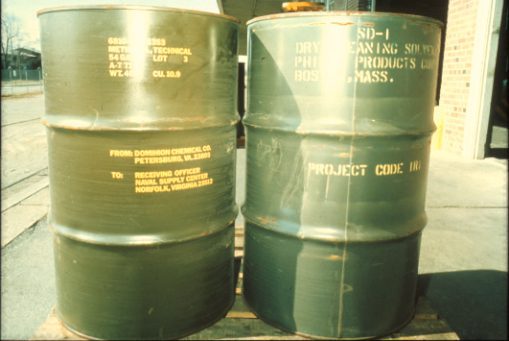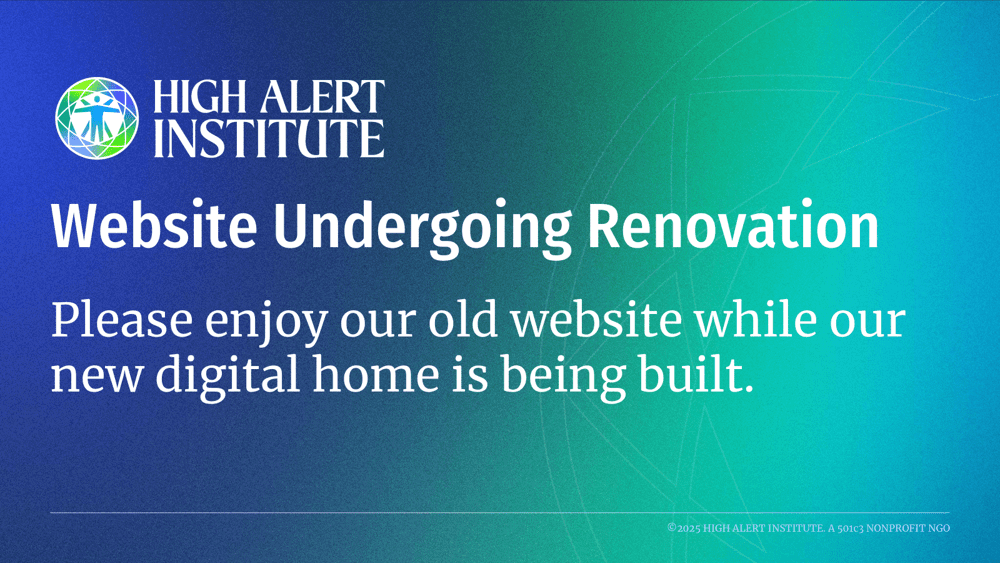High Alert Institute
How Small Businesses Can Be Successful in an Era of Increased Regulation

The justice department’s recent announcement that they are going to actively enforce the much-ignored PS Prep law (Private Sector Preparedness law) that was passed in 2009 has left many small businesses confused. What exactly is this law? How does it affect small businesses? What steps do I need to take to be compliant? Will it make it more difficult to operate? These are all common questions.
PS Prep is a collection of standards for companies to follow to ensure business continuity in the event of a natural or man-made disaster. Currently, the PS Prep law requires business continuity and continuity of operations planning for all businesses with more than 100 employees, and it will soon apply to companies of all sizes. So even if you’re a small business will only 20 employees, if you receive any federal funding, federal contracting, or have an SBA loan, you will need to meet PS Prep certification.
However, if you’re a small business and don’t receive federal funding, federal contracting, or have an SBA loan, you likely won’t need to meet PS Prep certification…but you may actually want to anyway.
First, realize that regulation isn’t always a bad thing. PS Prep was designed to be a benefit to small business, and it does offer great opportunity for small businesses, as long as you’re proactive about it. Unfortunately, soon after the law was passed in 2009 we had a recession and the H1N1 flu pandemic, so much of the attention and funding that was supposed to go to the SBA to make small businesses aware of PS Prep was diverted to other areas. So if you weren’t in the disaster preparedness business, you likely didn’t hear much about PS Prep…until now.
As you learn more about the law and how it affects you and your small business, here are some points to keep in mind.
- Get voluntary PS Prep accreditation now.
For those small business owners who are good at following online directions, you can go to SBA.gov and go through an online PS Prep accreditation process. This is completely voluntary and designed for companies with fewer than 100 employees—hence, it’s an accreditation, not a certification (what the big companies must get). In any event, when you’re done with the online process you’ll receive a certificate that shows you meet the PS Prep criteria and have been voluntarily accredited. Then, because you ultimately receive the same certificate as the big companies who are mandated to be PS Prep certified, those larger companies are more likely to do business with you. In this respect, the certificate of accreditation becomes the carrot on the end of the stick for more business.
- Promote your PS Prep accreditation heavily.
If you’re going to become familiar with and learn all the “government speak” about PS Prep, you might as well get the voluntary accreditation. But don’t stop there. You also have to tell the business community about your new accreditation. That means announcing it on your website, Tweeting about it, posting it on Facebook and LinkedIn, and of course, hanging the certificate on your office wall. When the large companies learn about your accreditation and see your certificate—the same certificate they had to jump through hoops to get—you look like a genius and a company they’ll want to do business with.
- Strive to be number two.
For many large companies, being PS Prep certified means they must have a second supplier for key things in their supply chain, or they must have a completely redundant supply chain. This is a great opportunity for small businesses, as they can now become part of the second supply chain in those industries that are federally mandated to have two. So while the big companies used to do business exclusively with the one big name supplier in their area, now they have to take another look at you and what your small business offers. Additionally, soon PS Prep certified businesses will only be able to do business with other companies who are PS Prep certified or voluntarily accredited. Therefore, get your accreditation and get it soon.
PS Prep Is For You
Fortunately, once you get PS Prep accredited, you don’t have to reapply when the rules for certification/accreditation change (and yes, they will change over time). You’ll be “grandfathered” in under your original accreditation, so you won’t have to recertify—no matter how radically the guidelines change. And if by chance you do have to recertify, history tells us that the early adopters will have access to a fast-track pathway rather than have to start the accreditation process from scratch.
Ultimately, embracing the PS Prep law not only helps your company be prepared should a disaster occur, but it also opens new markets for you. So this is one case where more regulation can actually help your company succeed and profit for the long term.
High Alert Institute
4800 Ben Hill Trail
Lake Wales, FL 33898
Office: 863.696.8090
FAX: 407.434.0804
EIN: 27-5078437
Info@HighAlertInstitute.org
Privacy Policy
Cookie Policy
Terms of Use
Disclaimers
Get Your Data
Shipping Policy
Message Us
Transparency
Registrations
Do Not Sell Info
Return Policy
A COPY OF THE OFFICIAL REGISTRATION AND FINANCIAL INFORMATION MAY BE OBTAINED FROM THE DIVISION OF CONSUMER SERVICES BY CALLING TOLL-FREE, WITHIN THE STATE, 1-800-435-7352 (800-HELP-FLA), OR VISITING www.FloridaConsumerHelp.com. REGISTRATION DOES NOT IMPLY ENDORSEMENT, APPROVAL, OR RECOMMENDATION BY THE STATE. Florida Registration #CH68959
REGISTRATION WITH A STATE AGENCY DOES NOT CONSTITUTE OR IMPLY ENDORSEMENT, APPROVAL OR RECOMMENDATION BY THAT STATE.










